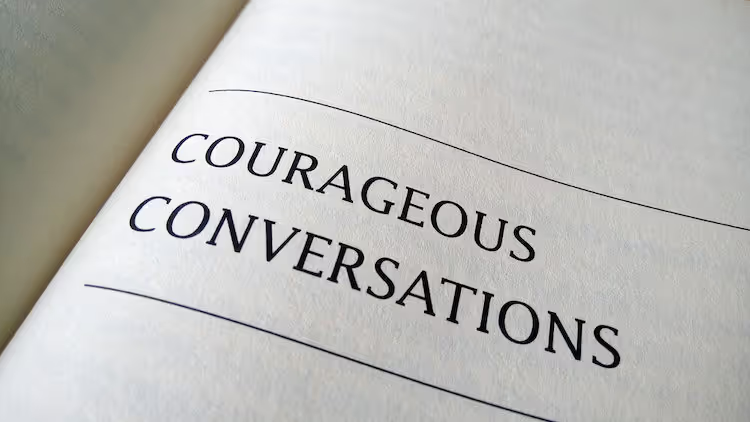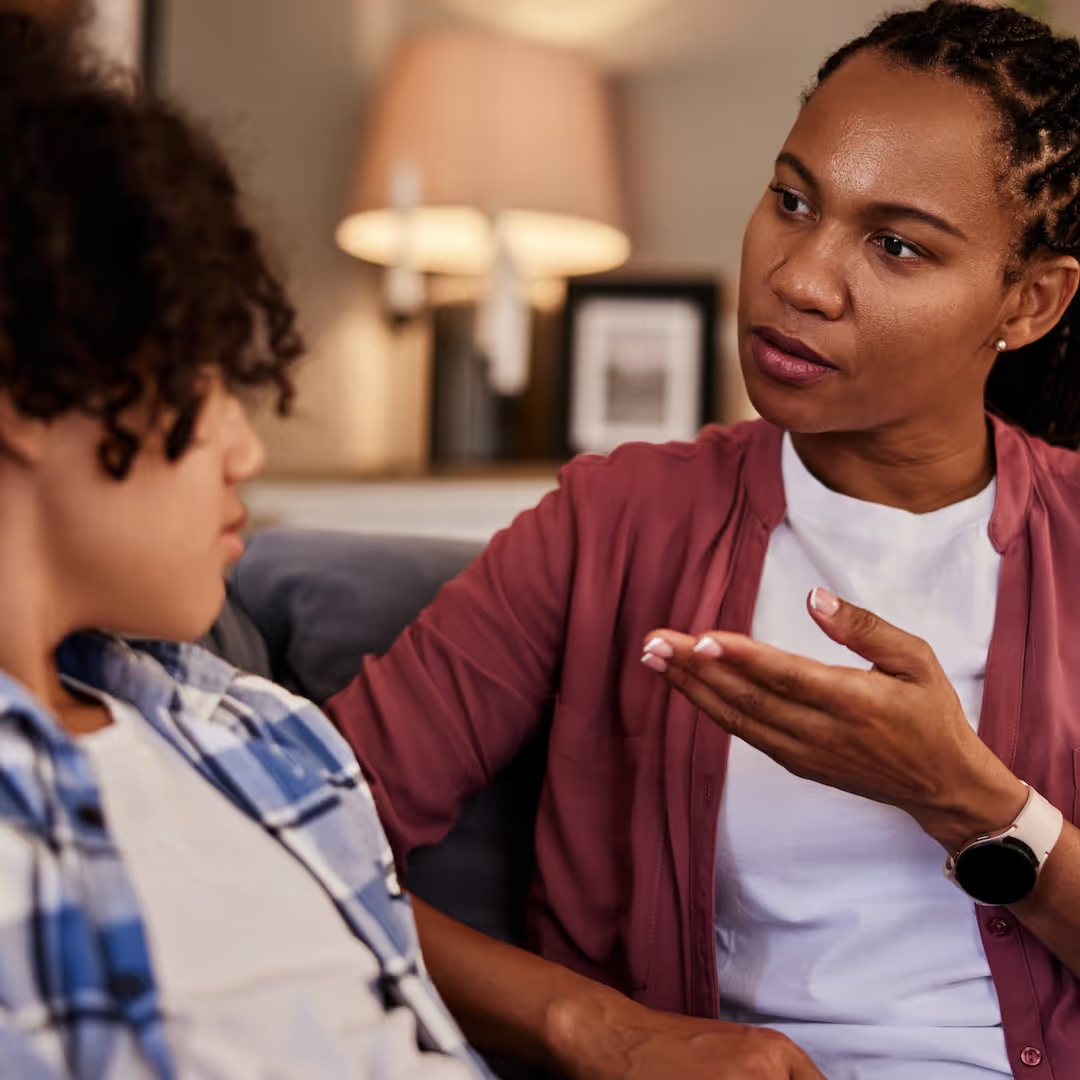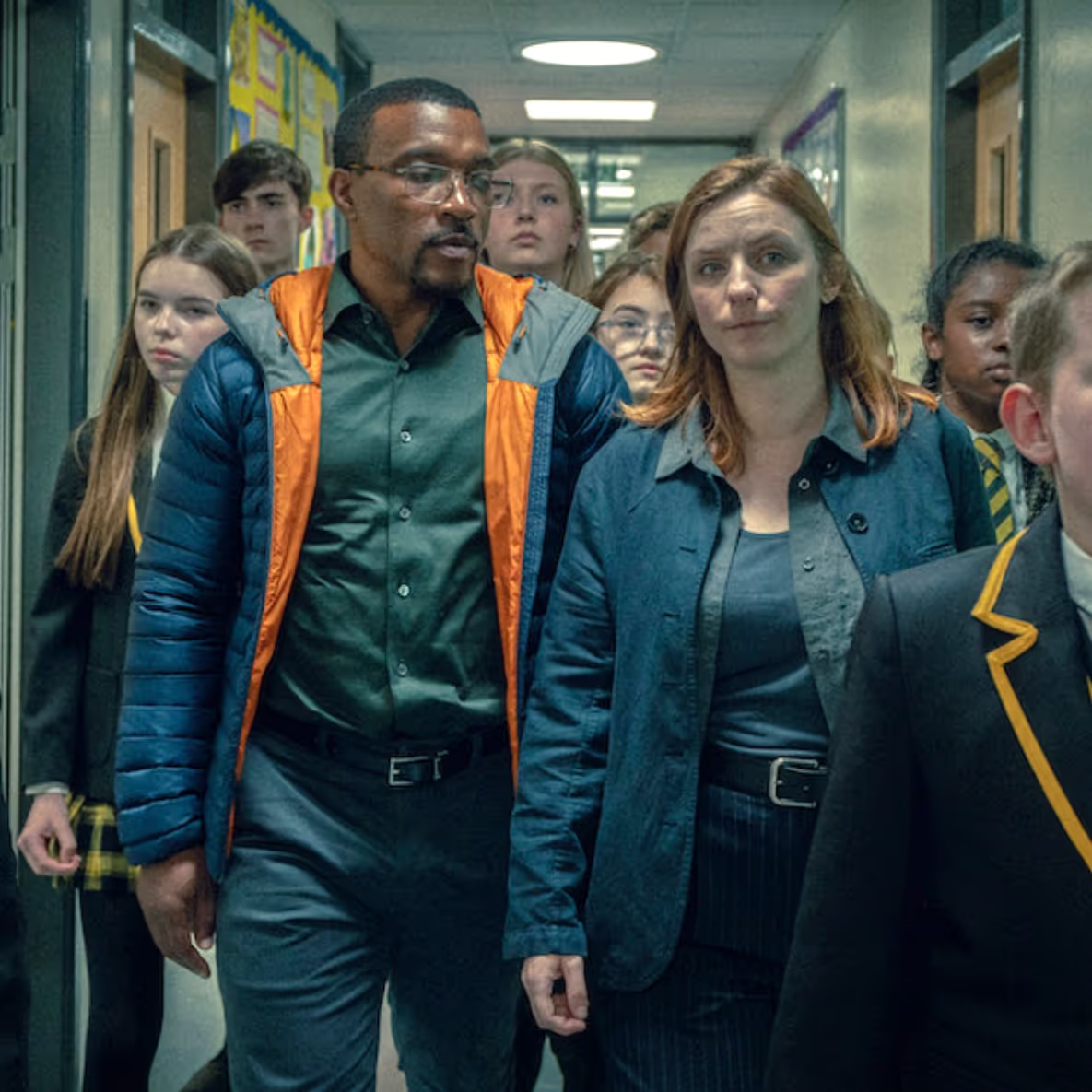


The other day, I talked with a college student who said, “Dating during COVID is disastrous.” He explained that by disastrous, he meant not happening. I have, of course, heard this from many others as well.
Social isolation, sexuality, curiosity, and then added to that, the fact that porn is just a click away. So how do we talk with our kids?
Wouldn’t it be great to have some easy, foolproof way of knowing exactly when and how to talk about it? You don’t need me to remind you that there are no easy, one-size-fits-all answers. But that said, I know I have appreciated learning ideas along this rocky road, and I am happy to pass some on, hoping there might be a new tidbit in here that can help.
Not surprisingly, reports on porn use have shown an upswing of use during COVID. We do not have current data specifically on youth and porn. We all know that younger and younger kids have access to social media, YouTube, the internet, particularly with COVID.
I know that it is tempting for parents with younger kids to believe that their kids will not get exposed to porn. You can install blockers, but we have to assume that they won't work 100% of the time. Also, we can’t control all the devices our kids will come in contact with. Exposure to pornography is always possible.
Peggy Orenstein interviewed more than 100 boys between the ages of 16 and 24 for her book, “Boys and Sex.” During these interviews, she found that boys first got exposed to porn around age 9. She writes, “ … often the first exposure was unbidden: older brothers (or older brother's friends) spun around a smartphone screen … to freak them out.” She found that intentional searches for pornography started around sixth to eighth grade.
As Orenstein writes so powerfully, "Porn raises the question about how young people’s erotic imaginations get shaped long before they've even so much as had a good-night kiss: the impact it may have on desire, arousal, behavior, sexual ethics and their understanding of gender, race, and power in sexual expression."
Today I want to focus on how to talk with younger kids about porn. However, I also have ideas for promoting discussion with your teens. Remember, if you can get your teen talking with you even for 5 minutes about sex and porn, that is a win.
Consider posting this question to your teen or some variation of it,
“If you were the parent of an 8-year-old, how would you address with them the fact that naked people doing sexual things are on the internet?”
The other question that can help spark a discussion is to see what they think about the fact that some school districts are starting to add information about porn into their health/sex ed classes. For example, this is happening in Massachusetts.
This excerpt from a New York Times includes stats that provide good entries into a conversation with teens,
“...data from a 2016 Indiana University survey of more than 600 pairs of children and their parents reveals a parental naïveté gap: Half as many parents thought their 14- and 18-year-olds had seen porn as had in fact watched it. And depending on the sex act, parents underestimated what their kids saw by as much as 10 times.”
It is hard for us parents to deal with the difficult topic of porn and our young kids. We pay a heavy price for the current form of our tech revolution — knowing that our kids can come across very disturbing images and videos.
I remember some time ago when my friend called me very upset. Her 10-year-old daughter had gone to a sleepover with some other girls, and one of the girls was a few years older than her daughter. When her daughter came home, she was unusually quiet and withdrawn and stayed that way for two days.
Finally, her daughter came to her with teary eyes and told her that the older girl showed them videos on her phone of two women taking a shower together and another of a man and a woman. She was very upset.
My friend said to me, "She was only 10, I didn't know I needed to start talking with her about all this already, and I had no idea what to do in this situation."
So while it is not easy, having multiple micro conversations over the years is key.
It is normal that these videos and images can lead to sexual feelings, even in young people. That is normal. We do not want our kids to feel any shame for having sexual feelings.
Click here if you are interested in hosting an ONLINE screening for your community.
Click here if you want to attend an ONLINE screening.
Click here for information about Dr. Ruston’s new book, Parenting in the Screen Age
Subscribe to Dr. Ruston’s Screenagers Podcast.
Learn more about showing our movies in your school or community!
Join Screenagers filmmaker Delaney Ruston MD for our latest Podcast

Learn more about our Screen-Free Sleep campaign at the website!
Our movie made for parents and educators of younger kids
Learn more about showing our movies in your school or community!
Learn more about showing our movies in your school or community!
Join Screenagers filmmaker Delaney Ruston MD for our latest Podcast

Learn more about our Screen-Free Sleep campaign at the website!
Our movie made for parents and educators of younger kids
Join Screenagers filmmaker Delaney Ruston MD for our latest Podcast
As we’re about to celebrate 10 years of Screenagers, we want to hear what’s been most helpful and what you’d like to see next.
Please click here to share your thoughts with us in our community survey. It only takes 5–10 minutes, and everyone who completes it will be entered to win one of five $50 Amazon vouchers.
The other day, I talked with a college student who said, “Dating during COVID is disastrous.” He explained that by disastrous, he meant not happening. I have, of course, heard this from many others as well.
Social isolation, sexuality, curiosity, and then added to that, the fact that porn is just a click away. So how do we talk with our kids?
Wouldn’t it be great to have some easy, foolproof way of knowing exactly when and how to talk about it? You don’t need me to remind you that there are no easy, one-size-fits-all answers. But that said, I know I have appreciated learning ideas along this rocky road, and I am happy to pass some on, hoping there might be a new tidbit in here that can help.
Not surprisingly, reports on porn use have shown an upswing of use during COVID. We do not have current data specifically on youth and porn. We all know that younger and younger kids have access to social media, YouTube, the internet, particularly with COVID.
I know that it is tempting for parents with younger kids to believe that their kids will not get exposed to porn. You can install blockers, but we have to assume that they won't work 100% of the time. Also, we can’t control all the devices our kids will come in contact with. Exposure to pornography is always possible.
Peggy Orenstein interviewed more than 100 boys between the ages of 16 and 24 for her book, “Boys and Sex.” During these interviews, she found that boys first got exposed to porn around age 9. She writes, “ … often the first exposure was unbidden: older brothers (or older brother's friends) spun around a smartphone screen … to freak them out.” She found that intentional searches for pornography started around sixth to eighth grade.
As Orenstein writes so powerfully, "Porn raises the question about how young people’s erotic imaginations get shaped long before they've even so much as had a good-night kiss: the impact it may have on desire, arousal, behavior, sexual ethics and their understanding of gender, race, and power in sexual expression."
Today I want to focus on how to talk with younger kids about porn. However, I also have ideas for promoting discussion with your teens. Remember, if you can get your teen talking with you even for 5 minutes about sex and porn, that is a win.
Consider posting this question to your teen or some variation of it,
“If you were the parent of an 8-year-old, how would you address with them the fact that naked people doing sexual things are on the internet?”
The other question that can help spark a discussion is to see what they think about the fact that some school districts are starting to add information about porn into their health/sex ed classes. For example, this is happening in Massachusetts.
This excerpt from a New York Times includes stats that provide good entries into a conversation with teens,
“...data from a 2016 Indiana University survey of more than 600 pairs of children and their parents reveals a parental naïveté gap: Half as many parents thought their 14- and 18-year-olds had seen porn as had in fact watched it. And depending on the sex act, parents underestimated what their kids saw by as much as 10 times.”
It is hard for us parents to deal with the difficult topic of porn and our young kids. We pay a heavy price for the current form of our tech revolution — knowing that our kids can come across very disturbing images and videos.
I remember some time ago when my friend called me very upset. Her 10-year-old daughter had gone to a sleepover with some other girls, and one of the girls was a few years older than her daughter. When her daughter came home, she was unusually quiet and withdrawn and stayed that way for two days.
Finally, her daughter came to her with teary eyes and told her that the older girl showed them videos on her phone of two women taking a shower together and another of a man and a woman. She was very upset.
My friend said to me, "She was only 10, I didn't know I needed to start talking with her about all this already, and I had no idea what to do in this situation."
So while it is not easy, having multiple micro conversations over the years is key.
It is normal that these videos and images can lead to sexual feelings, even in young people. That is normal. We do not want our kids to feel any shame for having sexual feelings.
Click here if you are interested in hosting an ONLINE screening for your community.
Click here if you want to attend an ONLINE screening.
Click here for information about Dr. Ruston’s new book, Parenting in the Screen Age
Subscribe to Dr. Ruston’s Screenagers Podcast.
Sign up here to receive the weekly Tech Talk Tuesdays newsletter from Screenagers filmmaker Delaney Ruston MD.
We respect your privacy.
The other day, I talked with a college student who said, “Dating during COVID is disastrous.” He explained that by disastrous, he meant not happening. I have, of course, heard this from many others as well.
Social isolation, sexuality, curiosity, and then added to that, the fact that porn is just a click away. So how do we talk with our kids?
Wouldn’t it be great to have some easy, foolproof way of knowing exactly when and how to talk about it? You don’t need me to remind you that there are no easy, one-size-fits-all answers. But that said, I know I have appreciated learning ideas along this rocky road, and I am happy to pass some on, hoping there might be a new tidbit in here that can help.
Not surprisingly, reports on porn use have shown an upswing of use during COVID. We do not have current data specifically on youth and porn. We all know that younger and younger kids have access to social media, YouTube, the internet, particularly with COVID.
I know that it is tempting for parents with younger kids to believe that their kids will not get exposed to porn. You can install blockers, but we have to assume that they won't work 100% of the time. Also, we can’t control all the devices our kids will come in contact with. Exposure to pornography is always possible.
Peggy Orenstein interviewed more than 100 boys between the ages of 16 and 24 for her book, “Boys and Sex.” During these interviews, she found that boys first got exposed to porn around age 9. She writes, “ … often the first exposure was unbidden: older brothers (or older brother's friends) spun around a smartphone screen … to freak them out.” She found that intentional searches for pornography started around sixth to eighth grade.
As Orenstein writes so powerfully, "Porn raises the question about how young people’s erotic imaginations get shaped long before they've even so much as had a good-night kiss: the impact it may have on desire, arousal, behavior, sexual ethics and their understanding of gender, race, and power in sexual expression."
Today I want to focus on how to talk with younger kids about porn. However, I also have ideas for promoting discussion with your teens. Remember, if you can get your teen talking with you even for 5 minutes about sex and porn, that is a win.
Consider posting this question to your teen or some variation of it,
“If you were the parent of an 8-year-old, how would you address with them the fact that naked people doing sexual things are on the internet?”
The other question that can help spark a discussion is to see what they think about the fact that some school districts are starting to add information about porn into their health/sex ed classes. For example, this is happening in Massachusetts.
This excerpt from a New York Times includes stats that provide good entries into a conversation with teens,
“...data from a 2016 Indiana University survey of more than 600 pairs of children and their parents reveals a parental naïveté gap: Half as many parents thought their 14- and 18-year-olds had seen porn as had in fact watched it. And depending on the sex act, parents underestimated what their kids saw by as much as 10 times.”
It is hard for us parents to deal with the difficult topic of porn and our young kids. We pay a heavy price for the current form of our tech revolution — knowing that our kids can come across very disturbing images and videos.
I remember some time ago when my friend called me very upset. Her 10-year-old daughter had gone to a sleepover with some other girls, and one of the girls was a few years older than her daughter. When her daughter came home, she was unusually quiet and withdrawn and stayed that way for two days.
Finally, her daughter came to her with teary eyes and told her that the older girl showed them videos on her phone of two women taking a shower together and another of a man and a woman. She was very upset.
My friend said to me, "She was only 10, I didn't know I needed to start talking with her about all this already, and I had no idea what to do in this situation."
So while it is not easy, having multiple micro conversations over the years is key.
It is normal that these videos and images can lead to sexual feelings, even in young people. That is normal. We do not want our kids to feel any shame for having sexual feelings.
Click here if you are interested in hosting an ONLINE screening for your community.
Click here if you want to attend an ONLINE screening.
Click here for information about Dr. Ruston’s new book, Parenting in the Screen Age
Subscribe to Dr. Ruston’s Screenagers Podcast.

More than half of teens ages 12–17 don’t know what sextortion is, despite nearly 1 in 5 reporting they experienced it as minors. New data from Thorn shows sextortion often involves demands for more images, in-person meetings, or ongoing relationships, and increasingly includes deepfake images. Awareness, clear definitions, and knowing where to get help are critical for prevention and response.
READ MORE >
So what is pornography, and how do we talk with our young people about this prickly topic? Every time I sit down to write about this, I feel a bit of sadness and, frankly, disbelief. It’s hard to accept that we’ve created a society where youth can be just a click away from all sorts of highly explicit sexual material. And yes, parental controls and blockers can help, but the internet is everywhere, and chances are, they will see things somewhere. But we have to talk about it.
READ MORE >
In today's blog I introduce and give a brief summary of my recent podcast conversation with Jo-Ann Finkelstein, PhD, psychologist and author of Sexism and Sensibility, where we spoke about many topics such as how to raise girls with fierce ambition and critical awareness of gender inequality without making them feel disheartened? And how we can help boys understand the hidden costs of rigid masculinity without shaming them into silence?
READ MORE >for more like this, DR. DELANEY RUSTON'S NEW BOOK, PARENTING IN THE SCREEN AGE, IS THE DEFINITIVE GUIDE FOR TODAY’S PARENTS. WITH INSIGHTS ON SCREEN TIME FROM RESEARCHERS, INPUT FROM KIDS & TEENS, THIS BOOK IS PACKED WITH SOLUTIONS FOR HOW TO START AND SUSTAIN PRODUCTIVE FAMILY TALKS ABOUT TECHNOLOGY AND IT’S IMPACT ON OUR MENTAL WELLBEING.
